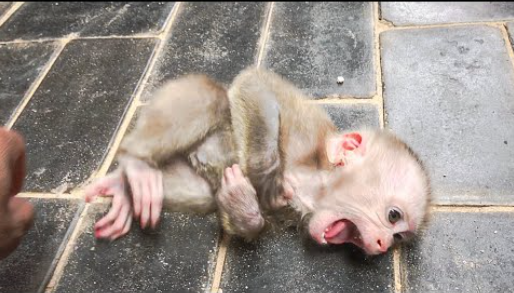When a baby monkey doesn’t want to be touched, it’s important to respect its boundaries and approach the situation with care and understanding. Baby monkeys, like all animals, have their own comfort zones and can feel threatened or stressed if forced into physical contact. In their early stages of life, they rely on their mothers or caregivers for security and comfort, so handling them too roughly or without consideration can cause them distress.
First, observe the baby monkey’s body language. Signs of discomfort may include pulling away, vocalizing (like crying or making high-pitched sounds), or showing signs of aggression such as baring teeth or swatting. If the baby monkey is showing these behaviors, it’s important to give it space and avoid forcing interaction.
Instead of trying to touch or hold the baby monkey, allow it to approach you on its own terms. Building trust takes time, and forcing physical contact may hinder the relationship. If you’re a caregiver or in a controlled environment like a sanctuary, you can still build trust through gentle and non-invasive actions. Speak softly, avoid sudden movements, and offer food or treats that the monkey can accept on its own terms.
In situations where human interaction is necessary, such as in rehabilitation or research settings, professionals should always be involved. They can guide appropriate approaches that consider the baby monkey’s emotional and physical well-being, ensuring that the animal is not overwhelmed or harmed in any way.
Ultimately, patience, respect, and understanding are key to building a positive and trusting relationship with a baby monkey.
